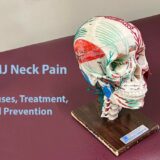emotional pain
Psychological pain is an unpleasant feeling (a suffering) of a psychological, non-physical, origin. A pioneer in the field of suicidology, Edwin S. Shneidman, described it as “how much you hurt as a human being. It is mental suffering; mental torment.” There is no shortage in the many ways psychological pain is referred to, and using a different word usually reflects an emphasis on a particular aspect of mind life. Technical terms include algopsychalia and psychalgia, but it may also be called mental pain, emotional pain, psychic pain, social pain, spiritual or soul pain, or suffering. While these clearly are not equivalent terms, one systematic comparison of theories and models of psychological pain, psychic pain, emotional pain, and suffering concluded that each describe the same profoundly unpleasant feeling. Psychological pain is believed to be an inescapable aspect of human existence. Other descriptions of psychological pain are “a wide range of subjective experiences characterized as an awareness of negative changes in the self and in its functions accompanied by negative feelings”, “a diffuse subjective experience … differentiated from physical pain which is often localized and associated with noxious physical stimuli”, and “a lasting, unsustainable, and unpleasant feeling resulting from negative appraisal of an inability or deficiency of the self.”


